[Generation Z in Asian countries] Philippines: Generation Z values “good smells”
- Release date: Apr 03, 2025
- 8405 Views

Filipinos often refer to themselves as a nation of clean-freaks. Living there, you can see that they really do place a lot of importance on cleanliness. In this article, we will focus on the Z generation in the Philippines and introduce their attitudes towards cleanliness, along with the results of a survey.
Awareness of cleanliness in Filipino households
The typical method of cleaning a home is to first wipe the dust off the shelves with a cloth, then sweep the tiled floor with a broom, and finally mop it with a damp cloth. As many households clean their homes every day, it can be said that they place importance on cleanliness. However, there are cases where the mop itself is not thoroughly cleaned, so it is a concern as to how hygienic it actually is. However, it seems that people do not worry too much about such minor details.
According to the Global Viewer consumer database owned by INTAGE, the response rate for the item “it smells good” was particularly high among female Generation Z in the Philippines as an element that makes them feel clean. The fact that “good smells” are used as a measure of cleanliness in many places, such as living rooms, bathrooms, toilets, and kitchens, also shows the importance that the Philippine Generation Z places on smells. Perhaps the smell of detergent wafting through rooms, toilets, and bathrooms makes them feel that they have become clean not only visually, but also olfactorily.
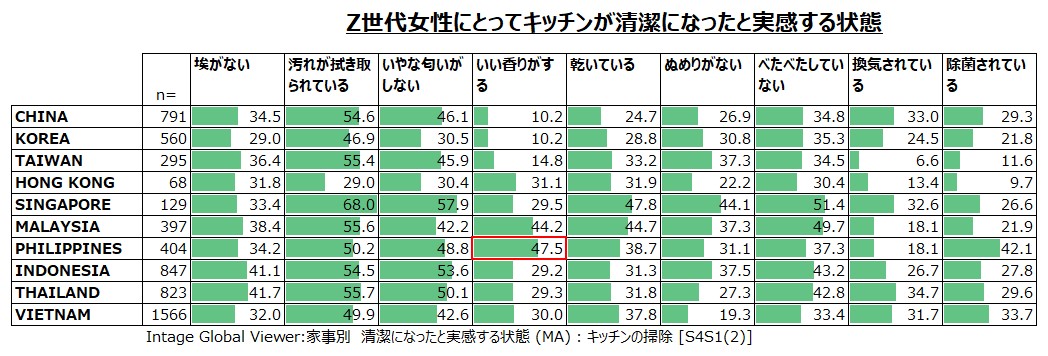
*About Global Viewer
This service provides reports tailored to your issues using questionnaire data on various actual conditions and attitudes of sei-katsu-sha in 11 countries (Asia and US) stocked by INTAGE.
The service covers 400 items, including actual behavioral conditions and awareness, values, and information contact related to various product and service categories.
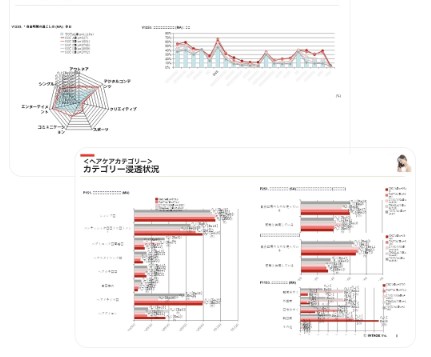
The state of housing in the Philippines and cleaning styles
The standard layout of a typical Filipino house is as follows: on the first floor there is a living room, kitchen, bathroom (basically just a shower, with no bathtub), and on the second floor there are 2 or 3 bedrooms for the family. Many houses also have a garage for cars, and because of the larger area to clean, large families tend to live in houses, while nuclear families tend to live in condominiums.
Because houses in the Philippines are much bigger than apartments in Japan, cleaning can be quite hard work. In particular, in many cases, two maids live and work in a single house, with one in charge of cooking and the other in charge of cleaning and washing. In large houses or households with young children, the number of maids may increase further. Maid rooms are usually set up next to the garage or near the laundry area, and are almost always included in the design when the house is built.
In the Philippines, it is common for women to be active in society, so a lifestyle has been established in which housework and childcare are left to the maids. As a result, cleaning is the job of the maids, and there are few opportunities for family members to clean.
The importance of maid cleaning style and scent
There are many different types of scents for the room spray.
The laundry culture of the Philippines and a passion for “good smells”
In the Philippines, a “good smell” is also important when doing the laundry. People prefer detergents that already have a strong smell, and it is common to use a fabric softener with an even stronger smell. A lot of fabric softener is used, and it is important to make sure that the smell is left on the laundry.
The most popular brand is Downy, which is so dominant that in the Philippines it is said that “the smell of laundry = Downy”. The large number of Downy products on display in the detergent section shows the high level of consumer support for the brand. The most popular scent is Sunrise Fresh, which is sold in 1480ml bottles for around 343 pesos (about 800 yen).
There are also products on sale that have Downy mixed into the detergent itself, and these products are also very popular. In the Philippines, there is a strong awareness that “a good smell = cleanliness”, and perhaps leaving a strong scent on the laundry is seen as proof of cleanliness.
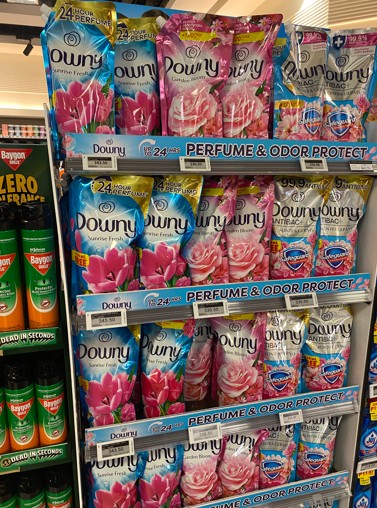
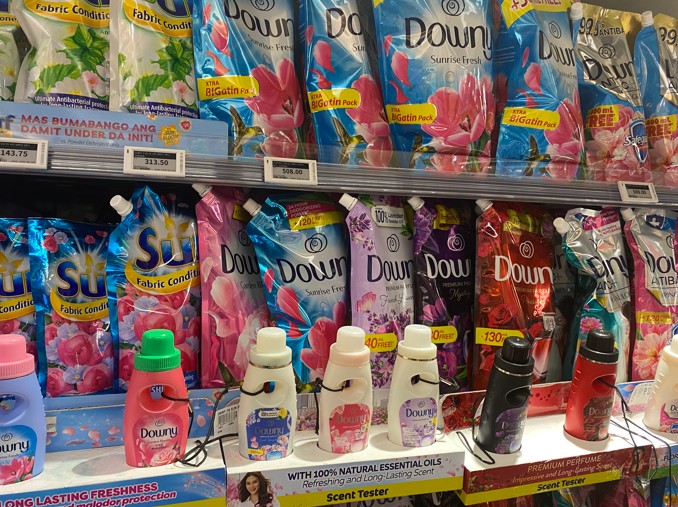
There are many different types of fabric softener
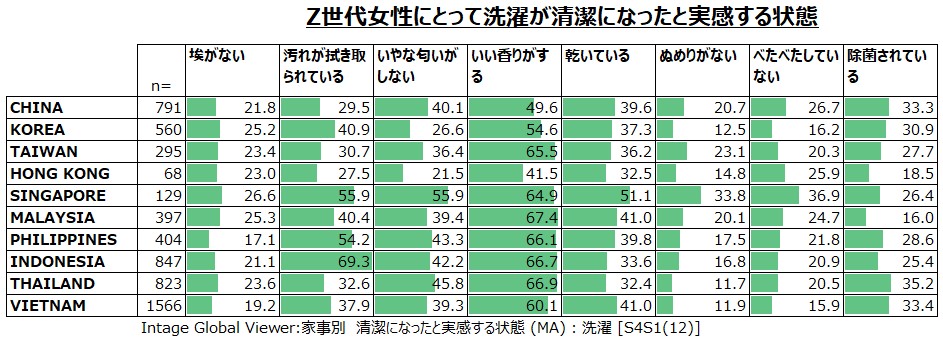
One of the survey results that clearly shows the national character of the Philippines is that the kitchen was cited as the place that should be kept cleanest.
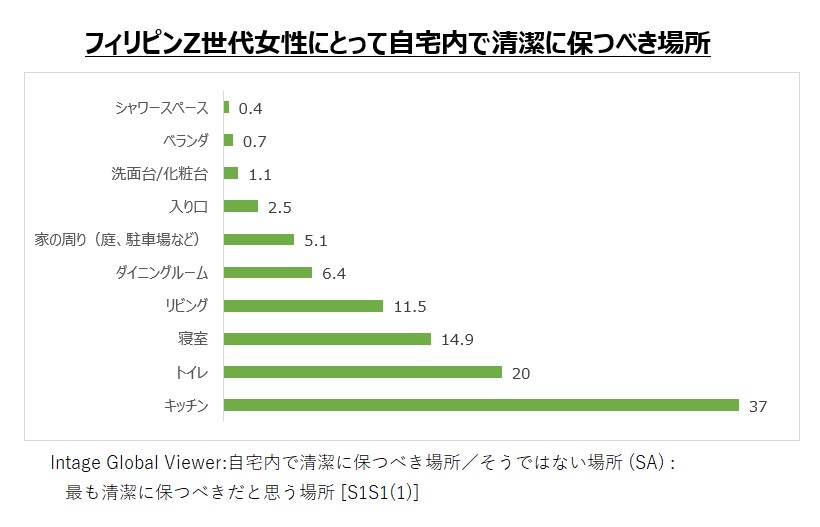
Because the Philippines has a warm climate, insects are easily attracted to the area. In particular, ants and newts can be found everywhere, and there are also many of the “certain insects” that people all over the world dislike. Perhaps due to the poor quality of the construction, there are often small holes in the walls, and various insects can enter through these holes. If you leave food in the kitchen, you may find ants swarming around it in no time at all.
In middle-class and above households, leftover food and ingredients that are being cooked are wrapped in cling film and stored in the refrigerator, but because the Philippines has a culture of buying in bulk, if the kitchen is not kept clean, insects will soon gather there, attracted by the smell of food.
The kitchen is a place where people gather in the home, and for Filipinos, mealtimes are very important. It is only natural that they would feel uncomfortable if such a place was full of food scraps and insects. For this reason, it is essential to keep the kitchen clean at all times.
In addition, dishwashing detergent sold in the Philippines has a stronger scent than that sold in Japan. One reason for this is that “insects dislike the scent of soap, so detergent is made to have a strong scent”. In fact, many products have a strong scent that lingers even after rinsing, and it seems that the perception that “clean dishes = dishes that smell of soap” is spreading.
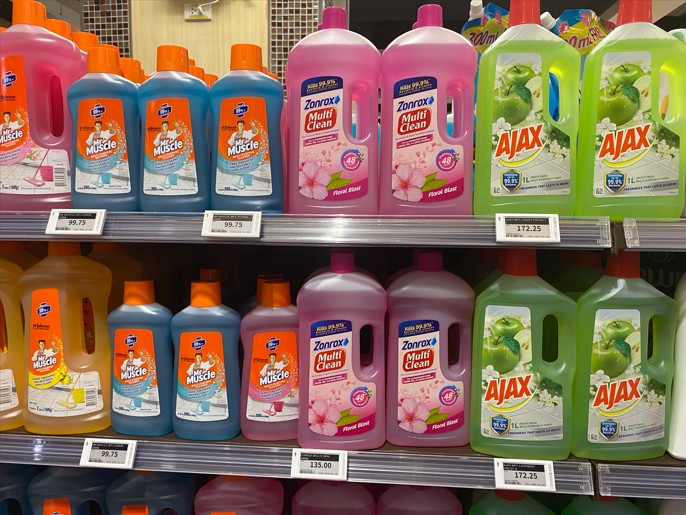
Detergent for dishes
The Philippine kitchen culture of using two different kitchens
One characteristic of the kitchen situation in the Philippines is the existence of a space called a “dirty kitchen”.
In the room for the maids, there is a bed and shower room for the maids to live in, and the dirty kitchen is located there. This is a kitchen for preparing the ingredients that have been bought, where things like washing vegetables, preparing chicken with the bones still attached, and removing the scales from fish are done. Although it is called a 'dirty' kitchen, it is not actually dirty, but is used to mean a place for preparing ingredients.
In addition to this dirty kitchen, there is a main kitchen used by the house owner. This is used to boil water and cook the ingredients that have been prepared.
The maid does the cleaning after cooking, but while the dirty kitchen is prone to getting dirty with oil and smelling of fish due to the food preparation, the main kitchen is kept clean at all times. The maids prepare their own meals in the dirty kitchen, so the house owner's main kitchen is not used.
This practice can also be seen in condominiums and other types of apartment buildings. A small kitchen is set aside for the maids, and the master and maids prepare their meals in their own kitchens.
The fact that the kitchen is the place that people think should be kept cleanest may be related to this lifestyle of using two separate kitchens.
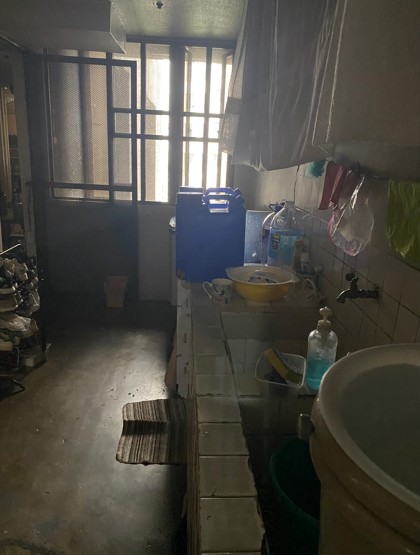
Dirty Kitchen Photo
A commitment to fragrance and the status of overseas products
The Z generation in the Philippines are very particular about “good smells”. In addition to detergents and fabric softeners, supermarkets also have a wide range of scented household goods such as air fresheners and body sprays. When you go to a shopping mall, the perfume section is very noticeable, and many people use perfume.
What is interesting is that “strong smells do not mean they are trying to cover up the smell of sweat”. Even though the temperature is high in the Philippines and people tend to sweat easily, even the poor rarely smell sweaty. This is thought to be because they are highly conscious of maintaining cleanliness on a daily basis.
In addition, they also do their laundry frequently, and even in households without washing machines, they wash their clothes thoroughly by hand, so there is almost never any smell left on their clothes.
Furthermore, in the Philippines, there is a sense of value that “the scent of foreign products = status”. For example, the popularity of the Downy fabric softener mentioned above seems to be due to the idea that “wearing the scent of an overseas brand makes you feel like you have status”. Using overseas products is not just a matter of functionality, but is seen as a way of showing your lifestyle level.
In this way, it can be said that Filipinos' obsession with scent is not just about cleanliness, but also has strong implications as a symbol of self-expression and status.
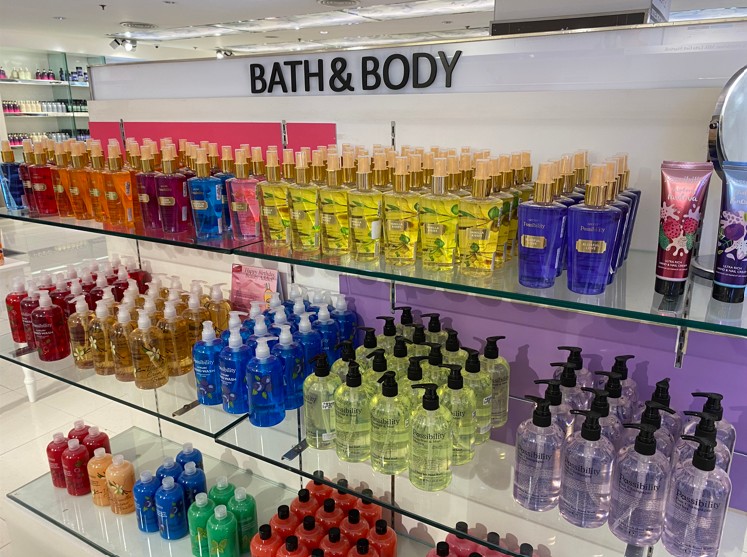
Bath and body items for use when showering
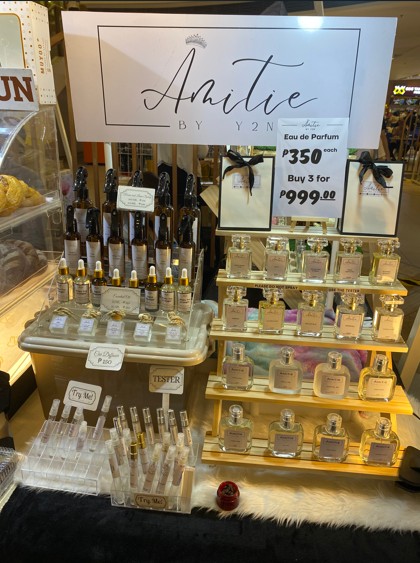
Local perfumes are reasonably priced at 350 pesos (800 yen) each.
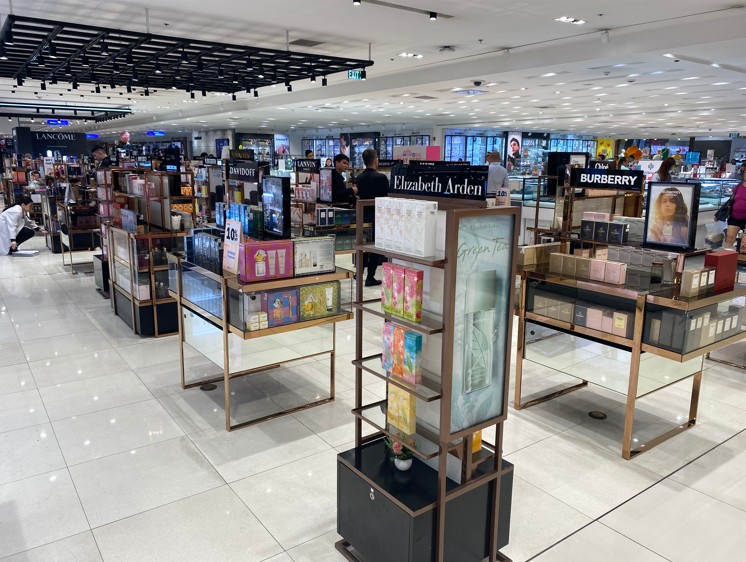
Perfume department in a high-class department store
Filipino bathing customs
In the Philippines, there is no tradition of taking a bath. Although most bathrooms in private homes have showers, bathtubs are not usually installed. As a result, there is no culture of soaking in a bathtub like there is in Japan, and the concept of “taking a bath” itself does not exist.
What is particularly interesting is that the morning shower culture that is common in Southeast Asia has taken root here.
In Japan, it is common to take a bath at night, but in the Philippines, it is a common practice to shower in the morning before going to school or work. What surprises tourists is the sight of Filipino women getting on public transport with their long hair still wet. This is a very common sight in the Philippines in the morning.
The climate and lifestyle are thought to be behind this morning shower culture. The Philippines is hot all year round and humid, so the idea of taking a morning shower to wake up refreshed and start the day feeling refreshed is probably well established.
Popularity of Western brands
Because Filipinos are a nation that is sensitive to smells, they are also very careful about body odor. For this reason, the use of deodorant products is common, and many different kinds of deodorant can be found in supermarkets and drugstores. For students, it is normal to keep a deodorant in their own locker at school, and the habit of using it on a daily basis has become established.
Among these deodorant products, the most popular are those from overseas, especially Western brands. Local products also exist, but the traditional method of using alum powder to eliminate the smell of sweat, called “tawas”, is common. However, because tawas is difficult to use in powder form in a bag, more convenient spray and roll-on types of foreign products are becoming popular.
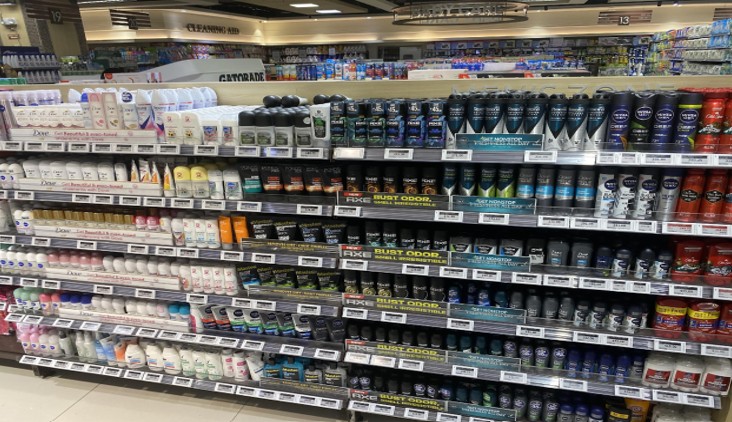
A wide variety of deodorant products
This foreign brand orientation also applies to cosmetics and hair care products. Although shampoos, conditioners, and cosmetics are manufactured in the Philippines, many of these products are natural products made from plants unique to the Philippines. However, many consumers prefer to use Western brands. This is because Western brands are frequently advertised on TV and in Internet ads, and because the Philippines is an English-speaking country and is strongly influenced by American culture.
The survey results also reveal that Filipinos have a strong preference for American and other foreign brands. This is not merely a brand preference, but also a recognition that “Western brands are of better quality” and as a status symbol.
Filipinos' Perception of Fragrance
In the Philippines, there are many products whose fragrance is too strong for Japanese people. However, for the Filipino Generation Z, this is normal, and the fragrance is accepted as rather pleasant. This is an indication that the entire nation has a culture that values fragrance.
Products for the Philippine market tend to be sold with particularly strong fragrances to suit local tastes. For example, daily necessities such as detergents, fabric softeners, body soaps, shampoos, and perfumes, even European and U.S. brands are sometimes distributed in versions with stronger fragrances for the Philippine market.
Translated with AI Translator
Related Articles
[Generation Z in Asian countries] : Thailand: Hair care products and protein-enriched milk that are popular with young women
[Generation Z in Asian Countries] Thailand : The Work Style Generation Z is Seeking - Focus on Young Women Starting Their Own Businesses
[Generation Z in Asian Countries] Vietnam: Vegan cosmetics are attracting the attention of young Vietnamese people
[Generation Z in Asian countries] Vietnam: Trends and behaviors of young women when choosing drinks
[Generation Z in Asian Countries] The food preferences of Generation Z in the Philippines reflect the national character - Western food vs. Japanese food
Related Article: Understanding Overseas Gen Z Characteristics: Country-Specific Trends in Values and Lifestyle (Singapore, Hong Kong, South Korea, Taiwan, China, Malaysia, Thailand, Indonesia, Vietnam, Philippines)
Using a large consumer database, we identify characteristics and trends among Gen Z in each country and present them in a summary article.
You can also view information on Gen Z in other countries.
Countries Covered: Singapore, Hong Kong, South Korea, Taiwan, China, Malaysia, Thailand, Indonesia, Vietnam, Philippines
-

Author profile
TNC Lifestyle Researcher
She lives in the Manila metropolitan area with her Filipino husband. She thinks that the sight of Filipino women riding jeepneys in the morning with their black hair blowing in the wind is a quintessential part of the Philippines.
-

Editor profile
Chew Fong-Tat
A Malaysian who has lived in Japan for 14 years. He is in charge of creating the Global Market Surfer website.
 Global Market Surfer
Global Market Surfer CLP
CLP


